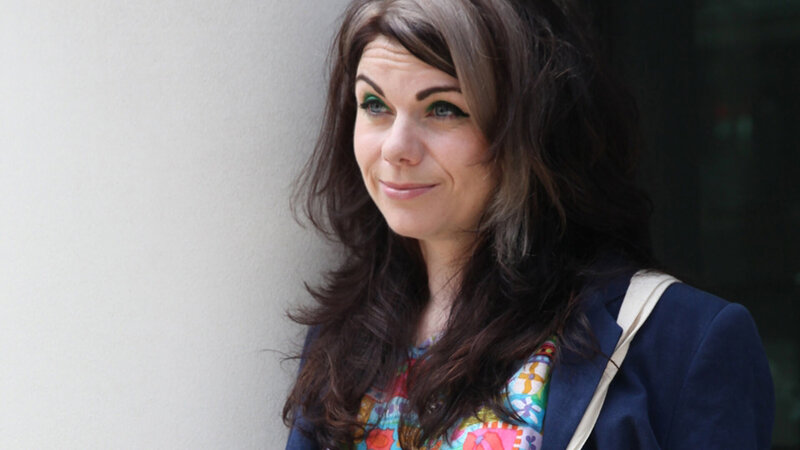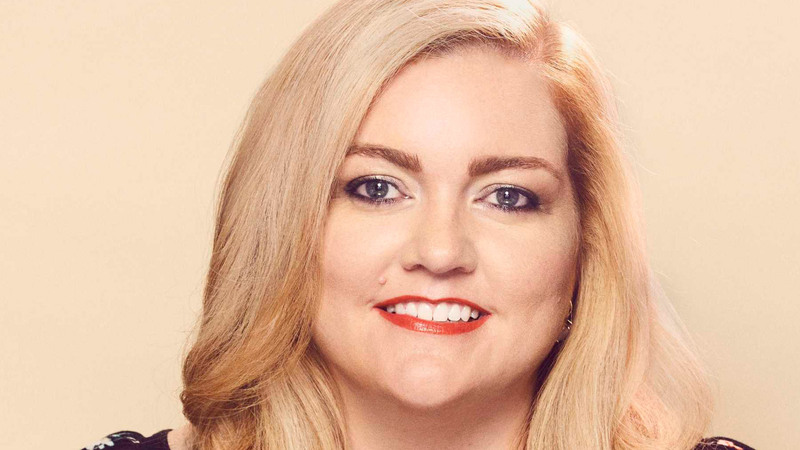You are viewing your 1 free article this month. Login to read more articles.
Most live author events back to full capacity from 19th July
Most live author events will be at full capacity again from 19th July, but rules on mask wearing, social distancing and implementing Covid-19 passports will be down to individual venues, organisers have said.
This does not spell the end for virtual events, however, with most offering a hybrid model so that people can continue to stream events virtually if they prefer to do so.
The team at Penguin Live held their first face-to-face events at the beginning of the month, kicking off with Caitlin Moran’s tour at St George’s Hall in Bradford on 4th July for her latest book More Than a Woman (Ebury), as well as a last-minute event with James O’Brien for his book How Not to Be Wrong (Ebury) at Homeground festival in Manchester.
Both events proved to be popular, despite being held at limited capacity and with mask wearing compulsory for those inside. Zoe Middleton, head of marketing at Penguin Live, told The Bookseller that the Moran tour “completely sold out” while O’Brien’s managed to sell more than 200 tickets despite being available for less than two weeks. “We would say that in our experience to date the appetite is absolutely there,” she said. So far no positive Covid cases have been traced to the events, which have gone “smoothly”.
Ticket sales for events later this summer are also “looking really good”, with Dolly Alderton’s evening at the London Palladium now thought to be at over 80% capacity. “We rescheduled our [Yotam] Ottolenghi tour for the autumn and several of those venues are already sold out, including London and Bristol,” said Middleton.
Vikki Mizon, head of creative events, said that audiences have generally stuck with new dates for rescheduled shows. “We have had refund requests, some [for buyers] because they can’t make the new date because they have other things, some because they don’t feel comfortable, but they have been minimal. I think that people have generally stuck with the rearranged date,” she said.
“We’ve had to pencil shows in and then move the shows as soon as something changes, we’ve had to book things in, in the hope that they would happen, and then remain positive and then change it if they couldn’t happen. I think the Caitlin Moran tour is a good example of when that worked. When the road map got announced and it looked like things might be opening up from June, we booked in the tour. It did seem speculative at that point. We were hopeful it would go ahead, but we didn’t know it would go ahead. We’re really glad now that we booked it in. So I think we’ve just been in really close contact with venues over the last year.”
She added: “From 19th July it does look like we’ll be doing full-capacity events again. I think some venues will still require masks and will still urge social distancing in queues, and urge washing your hands and hand sanitising, but we are hopeful that from 19th July we will start to go back to full-capacity events and theatres will be able to reopen.” She added: “Covid passports would be down to the venue involved and we would work closely with venues on this”.
At Oneworld, founder Juliet Mabey said there is a concern that audiences are “Zoomed out” and enthusiasm for online events has waned, so there is a move towards live, in-person events. “However, we’re still setting up online events where the author cannot travel or lives abroad, which gives us great flexibility, and hybrid events look set to continue for some time,” she said. “Either way, for live events there seems to be a general understanding that we might still need to incorporate social distancing and mask-wearing until people—organisers as well as those attending—feel comfortable with the situation again.”
Alex Fane, m.d. of events company Fane, which works with many publishers, said events run at a socially distanced capacity “are not financially viable”. He said all Fane events are back to 100% capacity from 19th July. Decisions on masks will be taken by the theatres in question, but he added: “As outlined in Monday's government announcement, some form of Covid status check will most likely be carried out on entry to venues, and venues are expected to encourage ticket holders to wear masks unless they are exempt.”
He said Fane is seeing “unprecedented demand for live events this summer and into the autumn as restrictions ease”, with events that would traditionally sell out one to two weeks in advance selling out five to six months prior to the planned date. “We've already sold over 130,000 tickets for our autumn/winter season. The feedback we have had is mostly about how excited audience members are to be in the room with talent again, but also how much people appreciate the offer of the streamed option,” he said. All Fane events will have a hybrid model to enable people to stream them virtually if they would prefer.
However, Fane remains concerned about Covid-19 insurance, which is not available to promoters, venues and booksellers. “Without some sort of official protection scheme in place, we continue to run events knowing that, at any minute, the government could change tack, an author or member of staff could test positive, or a large section of the audience would be unable to attend. At present, there is no scheme that will underwrite any losses occurring from this, so we remain at risk, even as social distancing restrictions lift,” he warned.
At Penguin Live, Mizon stressed one of the challenges so far has been using theatres at a third to half capacity. “It’s expensive because you have to have the same amount of staff on to make sure that the audience is safe. So some venues haven’t yet been able to reopen,” she said.
Currently audience Q&A sessions are not happening, because events teams are not passing microphones around. Instead audiences are being asked to email in their questions. Books are also being pre-signed. Mizon says she hopes these might be able to come back in the autumn, depending on the venue and the author, but she stressed that “virtual events are here to stay”.
“We’re going to definitely move back towards physical events, but some of those physical events will be hybrid because I think there’s a lot of positive accessibility things you get from putting on virtual events that we will really want to continue. Also there are authors who maybe don’t feel comfortable doing physical events, or are based abroad, and it makes more sense to do a virtual event for them,” she said.
Both Dolly Alderton and Stanley Tucci’s events at the Palladium will be hybrid events, and Bernardine Evaristo’s conversation at the Southbank Centre will also be livestreamed. But despite the advantages of virtual events, author Moran said “there’s something properly magical” about being in a room together.
She told The Bookseller: “There is no greater boost than walking on stage and looking your readers in the eye, and hearing them cheer. So much of writing is solitary, and full of self-doubt, so if you can have, in your memory-banks, a couple of reels of 'being onstage hearing everyone laugh', and 'being on stage and being able to hear a pin drop as you talk about something important, or dark, or sad'... you feel like you have a mandate. You know who you’re writing to, and on behalf of. Next time you’re at that desk, alone, trying to figure out how to say they things you want to say, you can remember when the audience coaxed you on for certain topics; the barks of recognition when you hit on something. It’s like the most glorious research possible.”
















